Education
Nigerians Govt orders universities, polytechnics to publish budget, others on websites
Published
7 days agoon
By
Ekwutos Blog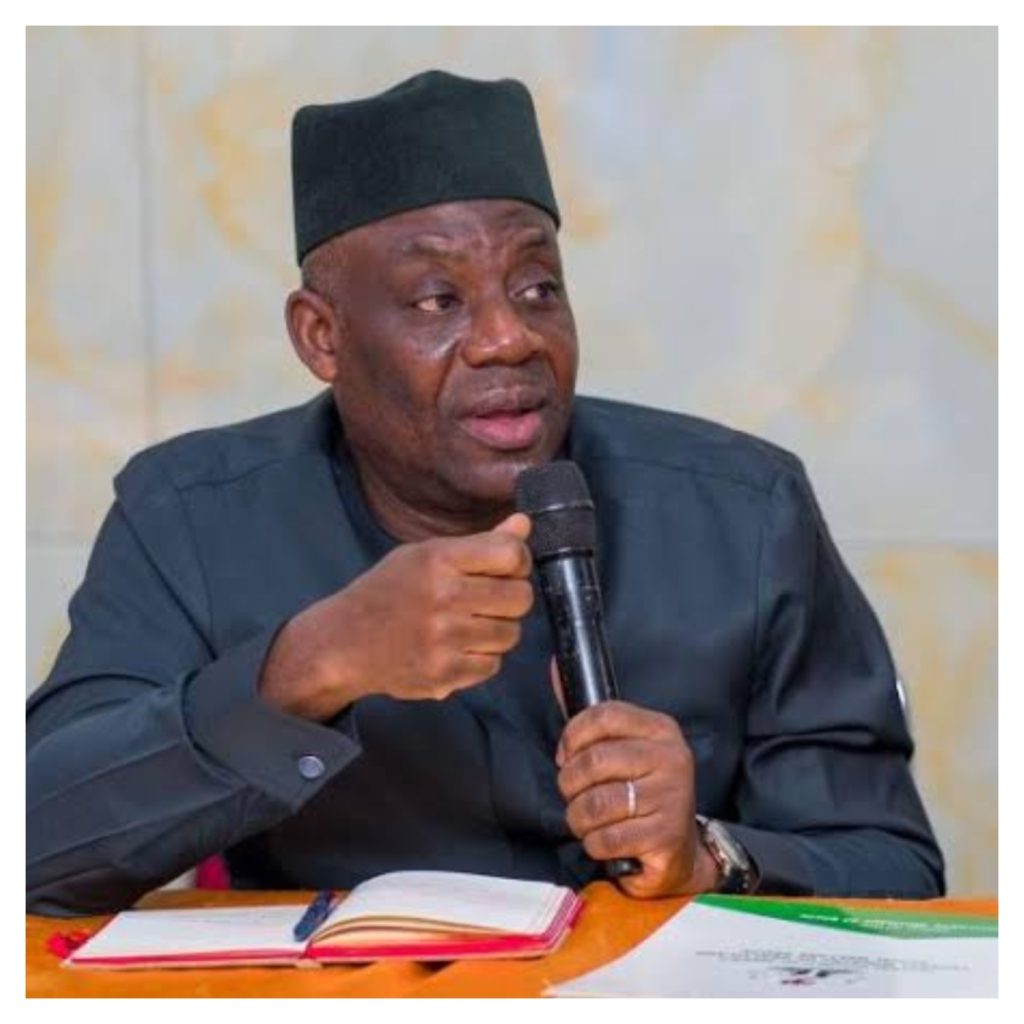
The Nigerian government has directed all heads of federal universities, polytechnics, colleges of education and other higher institutions to disclose their annual budget and other institutional data for public scrutiny.
The Minister of Education, Tunji Alausa, gave this directive in a statement released on Saturday by the ministry’s spokesperson, Boriowo Folasade
The minister said that educational institutions should publish their budget breakdown, research grant, Tertiary Education Trust Fund Allocation as well as student population on their official websites.
According to the minister, the move is to enshrine accountability and transparency in Nigeria’s education sector.
“In a bold move to entrench transparency, accountability, and good governance in Nigeria’s tertiary education system, the Honourable Minister of Education Dr Maruf Tunji Alausa has issued comprehensive directive mandating all Federal Vice- Chancellors, Rectors and Provost to publish key institutional data on their official websites with immediate effect. Aligning Nigeria’s higher education management with global best practices.
“Each institution must provide its Annual Budgetary Allocation in full detail, including the breakdown of expenditure across three core areas: personnel cost overhead costs and capital expenditure. In addition,
institutions are to disclose their Research Grant Revenue from the previous year.
“This data should be separated into two distinct sources: grants obtained from domestic bodies such as local industries, government agencies, or foundations; and those received from international sources, including foreign institutions, multilateral organizations, and development partners.
“Also to be displayed is the TETFund Allocation for the current year. The Institutions must clearly show the
total amount received from the TETFund, reflecting financial support for academic and infrastructural development in the present calendar year,” the statement said.
The directive further mandates the institutions to publish the total value of their endowment fund as recorded at the end of the previous year. This figure, which reflects funds donated or invested for the institution’s long-term financial health, must be updated quarterly to ensure currency and transparency.
“Finally, institutions are to present their current Total Student Population, which must be categorized into undergraduate and postgraduate levels, thereby providing a clear picture of enrolment and institutional capacity.
“The Ministry emphasizes that this information must be presented in a clear, accessible, and user-friendly format for public visibility. Websites should be structured in a way that allows the public, including parents, students, and stakeholders, to easily locate and understand these data points.
“All federal institutions are expected to comply fully with this directive and ensure that their websites are completely updated no later than May 31, 2025,” the statement added.
Ekwutosblog had earlier reported that a transparency report described Nigerian universities as a den of impunity and secrecy.
You may like
If you are afraid of insecurity in your village to the extent you cannot live or operate from there, then you are not qualified to answer a Dibia, Ezenwanyi, Nze, Obi, Ezeani, Igwe.- Nze Tobe Osigwe
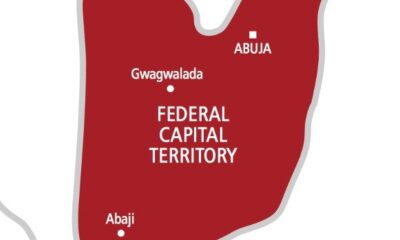

Abuja mother dumps baby by roadside


Trading platform users deny crash claim


GOOGLE’S $2 TRILLION STORY: FROM HUMBLE BEGINNINGS TO GLOBAL DOMINATION


Nigerians score CrediCorp, power, agric ministries low
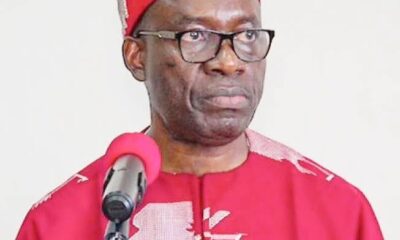

We must stop contaminating our rivers and streams in the name of ‘odinani’ (tradition)—- Gov Chukwuma Soludo
Education
Nigerian govt not applying statistics in national planning, resource allocations – Nwabueze
Published
2 days agoon
April 11, 2025By
Ekwutos Blog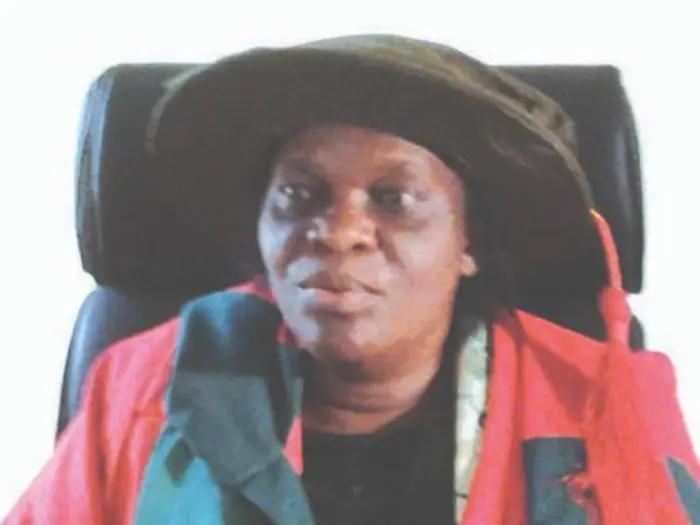
Nigerian govt not applying statistics in national planning, resource allocations – Nwabueze
The government’s attitude, according to her, negatively affects national planning, the economy, allocation of scarce resources and also affects the electoral system.
Nwabueze, who stated this while delivering the 58th Inaugural Lecture of Michael Okpara University of Agriculture, Umudike, Abia State on Wednesday, said that inaccurate application of statistics had negatively affected the Nigerian electoral system and also encouraged electoral malpractices in many instances.
She lamented that statistics, which are important to every field and household, are not receiving deserved attention from the government unlike what obtains in the Western World.
“What is different between our government and the Western government is that Western government, they make use of data, they make use of statistics.
“If our government will listen to us and make use of statistics, then we will be better off,” she stated.
The 58th Inaugural Lecturer, who called for a prudent electoral system in the country, said that anomaly of number of cast votes being higher than registered voters in Nigeria during elections can be obliterated with the right use of statistics.
“My colleagues in the University of Ibadan carried out a research on the last election in Nigeria and they were able to bring out the discrepancy between the registered voters and what they observed in the field, and it was loud,” she added.
She faulted the Federal government’s much reliance on data released by the National Bureau for Statistics, saying that it had not produced the much desired results.
Nwabueze, who is also a Professor of Econometrics, recalled how Army officers whisked her to safety after some thugs attempted to set her office ablaze during a previous election because she refused to allow manipulated result figures to be included, when she worked as a Returning Officer in the Northern part of Abia State.
Education
Twin Brothers Achieve Academic Excellence, Graduate with First-Class Degrees from University of Ibadan
Published
2 days agoon
April 10, 2025By
Ekwutos Blog
Busoye Tolulope Matthew and Busoye Opegbemi Matthias, twin brothers, have made waves in the academic community by graduating with first-class degrees from the University of Ibadan.
The duo emerged as the joint best-graduating students from the Department of Electrical and Electronics Engineering, each achieving an impressive CGPA of 3.94/4.00. They were also recognized as the overall best students from the Faculty of Technology.
The twins shared photos of their numerous awards and a breakdown of their academic performance, showcasing their consistent excellence from their 100 level to final year. The data speaks for itself: “Faculty of Technology, University of Ibadan Best Graduating Students, BGS Busoye (Twins) Graduating Students Speaker President Matthias Matthew 100L – 3.84 / 3.89 200L – 3.92 / 3.94 300L – 3.95 / 3.93 400L – 3.94 / 3.93 500L – 3.94 / 3.94”
Photo source: Instagram
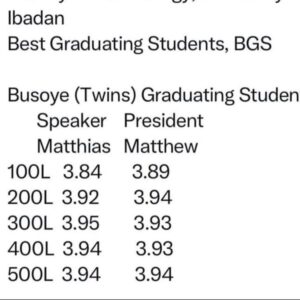




Education
ALAUSA FLAGS OFF SBMC-SIP AND TEACHER DEVELOPMENT INITIATIVES TO REVITALISE BASIC EDUCATION.
Published
3 days agoon
April 10, 2025By
Ekwutos Blog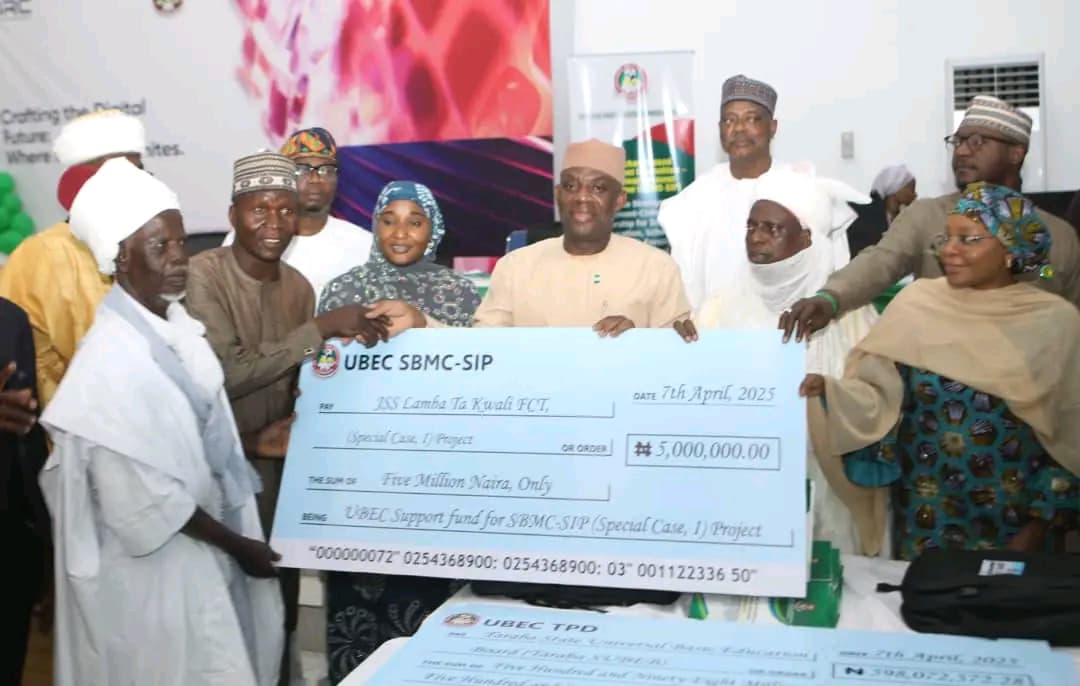
The Honourable Minister of Education, Dr. Maruf Tunji Alausa, has officially launched the School-Based Management Committee – School Improvement Programme (SBMC-SIP) and the Teacher Professional Development (TPD) initiative, both implemented by the Universal Basic Education Commission (UBEC).
He stated that these transformative programmes, funded through the UBE Intervention Fund, aim to strengthen school governance through community participation and improve teaching standards to enhance learning outcomes. This aligns with the Renewed Hope Agenda of President Bola Ahmed Tinubu, GCFR.
Dr. Alausa announced the Federal Government’s support for UBEC’s 2025–2027 targets, which include:
Construction of 7,200 UBE facilities
Provision of 1.68 million school furniture units
Renovation of 195,000 classrooms
Installation of 22,900 boreholes and 28,000 toilets
Perimeter fencing in 14,000 rural schools
These efforts align with the upcoming competence-based curriculum, with Teachers’ Guides in development. He emphasized the importance of teacher upskilling and community engagement, urging State and Local Governments to support and monitor the SBMC-SIP.
Commending UBEC, he called on stakeholders to support the Renewed Hope vision. Prof. Suwaiba Said Ahmad, Minister of State for Education, reaffirmed the government’s dedication, citing achievements in infrastructure, teacher training, and resource distribution.
Dr. Aisha Garba, UBEC Executive Secretary, highlighted the initiatives’ focus on bridging infrastructure and teacher quality gaps. “We are not merely launching programmes; we are reaffirming a national commitment to every Nigerian child,” she said.
With over ₦2 billion allocated to 1,147 SBMCs, over 15,000 projects will be supported, fostering transparency and sustainable development.
If you are afraid of insecurity in your village to the extent you cannot live or operate from there, then you are not qualified to answer a Dibia, Ezenwanyi, Nze, Obi, Ezeani, Igwe.- Nze Tobe Osigwe

Abuja mother dumps baby by roadside

Trading platform users deny crash claim
Trending

 Trending6 months ago
Trending6 months agoNYA demands release of ‘abducted’ Imo chairman, preaches good governance
- Business6 months ago
US court acquits Air Peace boss, slams Mayfield $4000 fine

 Politics6 months ago
Politics6 months agoMexico’s new president causes concern just weeks before the US elections
- Entertainment6 months ago
Bobrisky transferred from Immigration to FCID, spends night behind bars
- Entertainment6 months ago
Bobrisky falls ill in police custody, rushed to hospital

 Politics6 months ago
Politics6 months agoRussia bans imports of agro-products from Kazakhstan after refusal to join BRICS

 Politics6 months ago
Politics6 months agoPutin invites 20 world leaders
- Politics1 year ago
Nigerian Senate passes Bill seeking the establishment of the South East Development Commission.

